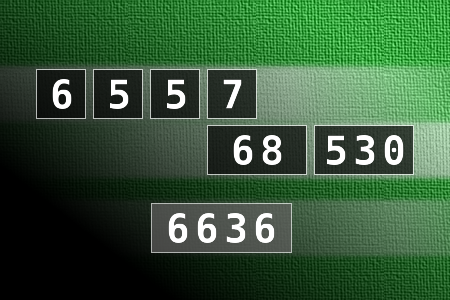Calculate the number 6636
NUMBERMANIA: Calculate the number 6636 using numbers [6, 5, 5, 7, 68, 530] and basic arithmetic operations (+, -, *, /). Each of the numbers can be used only once.Correct answers: 11
The first user who solved this task is Nasrin 24 T.
#brainteasers #math #numbermania

One evening, a man gave his ti...
One evening, a man gave his tipsy secretary a ride home after an office party. His wife was prone to jealousy, so he didn't mention the incident to her.
Later in the evening, he was driving his wife to a restaurant when he noticed a stiletto-heeled shoe half-hidden under the passenger seat. Gripped with terror, he took advantage of a moment when she wasn't looking to grab the shoe and throw it out of the window.
The rest of the journey went well until they arrived at the restaurant.
"That's strange," said his wife, looking a little agitated. "Have you seen my other shoe?"
Later in the evening, he was driving his wife to a restaurant when he noticed a stiletto-heeled shoe half-hidden under the passenger seat. Gripped with terror, he took advantage of a moment when she wasn't looking to grab the shoe and throw it out of the window.
The rest of the journey went well until they arrived at the restaurant.
"That's strange," said his wife, looking a little agitated. "Have you seen my other shoe?"

